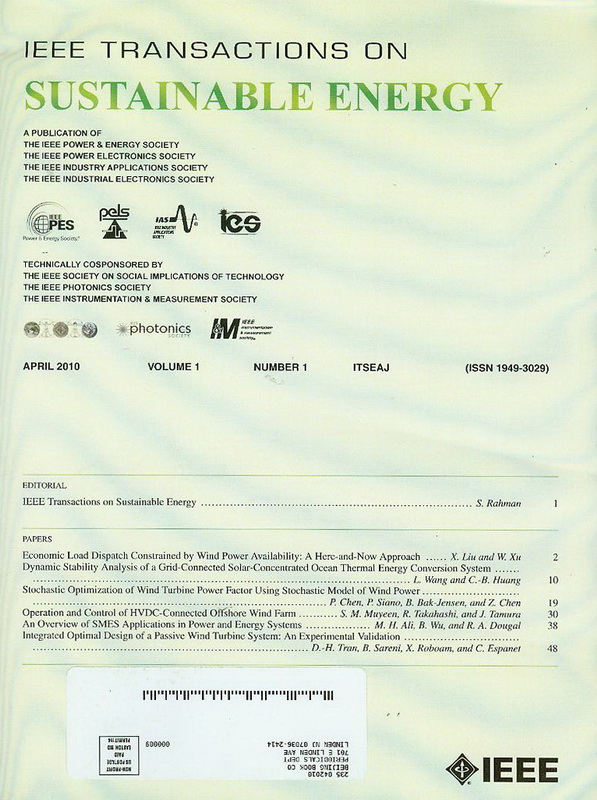System Strength Constrained Grid-Forming Energy Storage Planning in Renewable Power Systems
IF 8.6
1区 工程技术
Q1 ENERGY & FUELS
引用次数: 0
Abstract
With more inverter-based renewable energy resources replacing synchronous generators, the system strength of modern power networks significantly decreases, which may induce small-signal stability (SS) issues. It is commonly acknowledged that grid-forming (GFM) converter-based energy storage systems (ESSs) enjoy the merits of flexibility and effectiveness in enhancing system strength, but how to simultaneously consider the economic efficiency and system-strength support capability in the planning stage remains unexplored. To bridge the research gap, this paper develops a system strength constrained optimal planning approach of GFM ESSs to achieve a desired level of SS margin. To this end, the influence of GFM ESS power capacities and locations on the system strength is firstly quantified based on the framework of generalized short-circuit ratio. On this basis, system strength constrained optimal placement and sizing of GFM ESSs is formulated into optimization problems with eigenvalue constraints. Two practical scenarios with and without a limit on the number of selected sites are considered. Finally, quadratic support function based iterative optimization approaches are developed to address the planning problems. Case studies in the modified IEEE 39-bus and 118-bus systems validate the effectiveness and efficiency of the proposed approaches under different scenarios by comparing with two other benchmarks.求助全文
约1分钟内获得全文
求助全文
来源期刊

IEEE Transactions on Sustainable Energy
ENERGY & FUELS-ENGINEERING, ELECTRICAL & ELECTRONIC
CiteScore
21.40
自引率
5.70%
发文量
215
审稿时长
5 months
期刊介绍:
The IEEE Transactions on Sustainable Energy serves as a pivotal platform for sharing groundbreaking research findings on sustainable energy systems, with a focus on their seamless integration into power transmission and/or distribution grids. The journal showcases original research spanning the design, implementation, grid-integration, and control of sustainable energy technologies and systems. Additionally, the Transactions warmly welcomes manuscripts addressing the design, implementation, and evaluation of power systems influenced by sustainable energy systems and devices.
 求助内容:
求助内容: 应助结果提醒方式:
应助结果提醒方式:


